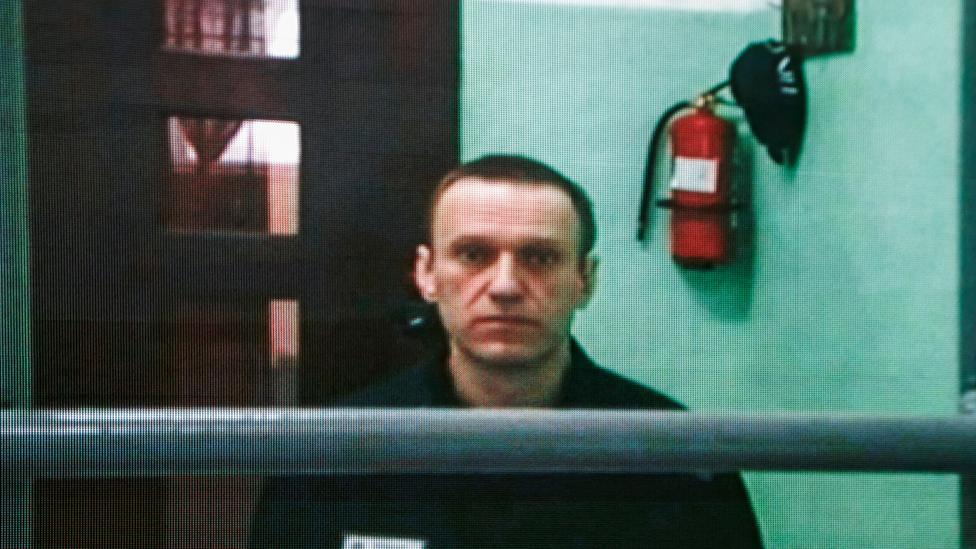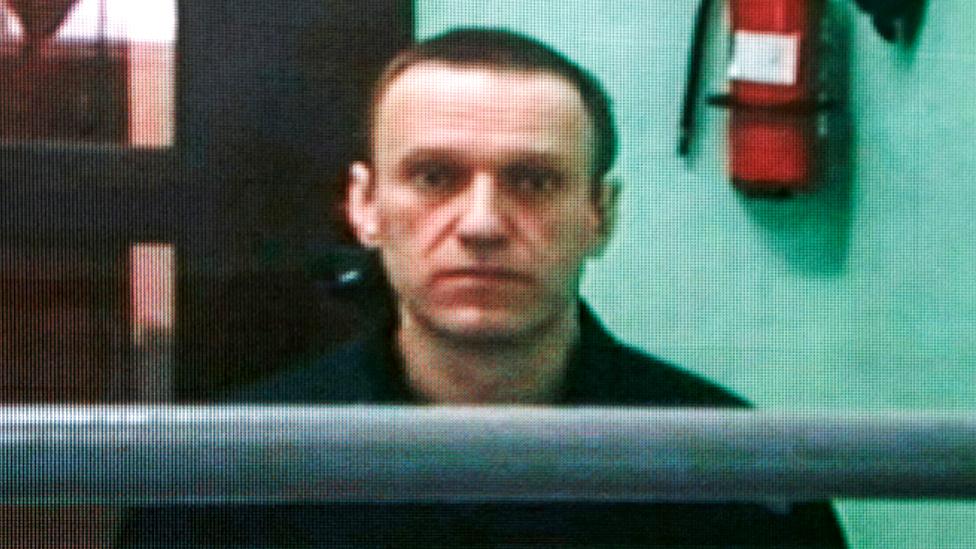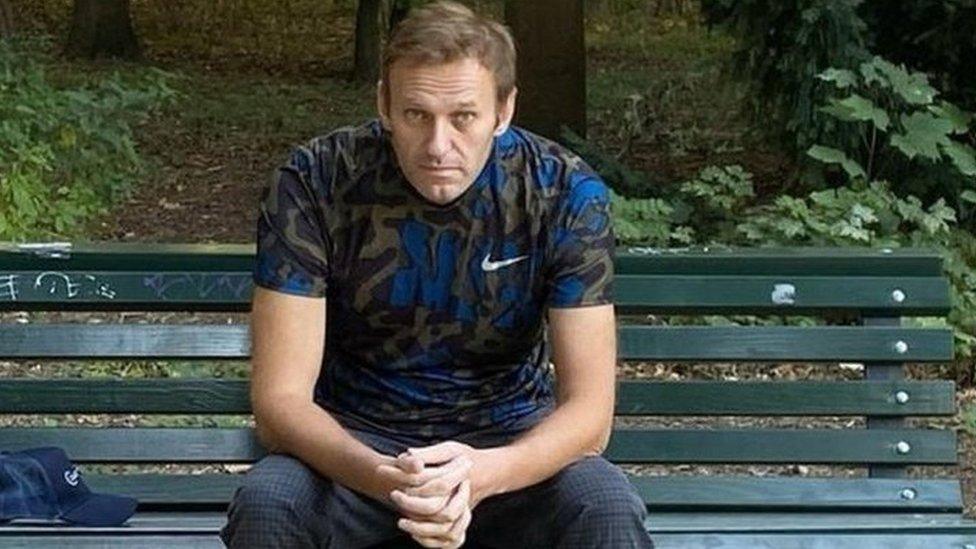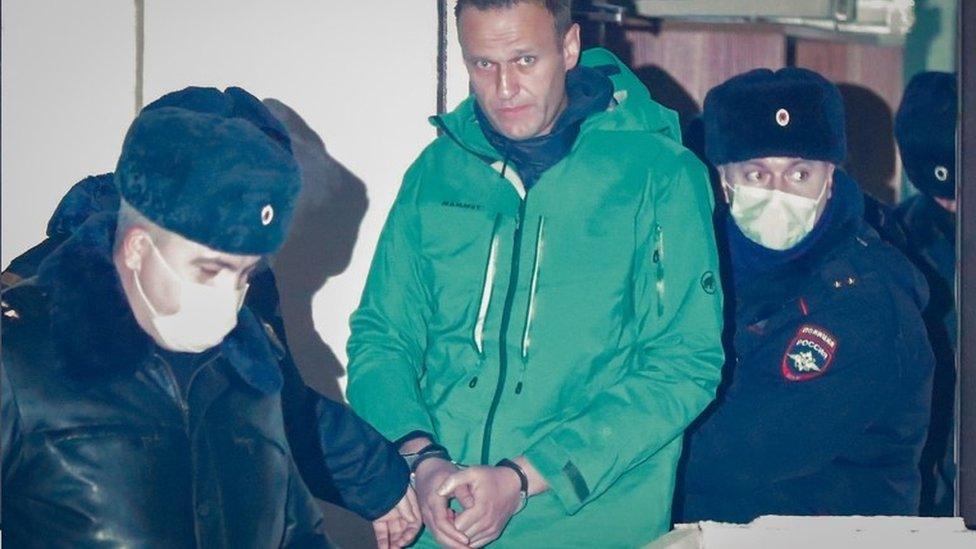Alexei Navalny: Russian opposition leader 'removed from penal colony'
- Published

Mr Navalny has frequently appeared in court by video link, but recently he has been absent
Imprisoned Russian opposition leader Alexei Navalny has been removed from the penal colony where he was serving his sentence and his whereabouts are unknown, his spokeswoman has said.
Kira Yarmysh wrote on social media that officials at the Melekhovo colony said he was no longer registered there.
The White House said it was "deeply concerned" by the reports.
Mr Navalny's aides were expecting him to be moved to a stricter regime jail, after his prison sentence was extended.
They say his disappearance is linked to recent announcements about elections.
On Friday, Russian President Vladimir Putin declared his intention to stand for re-election next March.
In August, Mr Navalny was found guilty of founding and funding an extremist organisation, which he denies, and was given an extra 19 years to serve.
He had already been sentenced to nine years for parole violations, fraud and contempt of court. All the charges against him are widely viewed as politically motivated.
He was told he would have to continue his incarceration in a "special regime colony", a type of prison which is normally reserved for dangerous criminals, reoffenders and those subject to life imprisonment.
Mr Navalny's associates said earlier on Monday they had had no news of him for six days.
He had been absent from several recent court appearances, which he has in the past attended by video link. Prison authorities blamed the absences on technical problems at the colony.
Then Ms Yarmysh said lawyers waiting for news outside Melekhovo, 235 km (145 miles) east of Moscow, and another nearby colony, had been told that he was not registered in either place, external.
His aide Leonid Volkov said this was "0% coincidence and 100% direct manual political control from the Kremlin".
"It's not a secret for Putin who his main opponent is in these 'elections'," he said.
"And he wants to make it so that Navalny's voice is not heard. So each one of us must become the voice of Navalny."
For more than a decade, Mr Navalny sought to expose corruption at the heart of Russian power. His video investigations have received tens of millions of views online.
A charismatic campaigner, he seemed to be the only Russian opposition leader capable of mobilising people in large numbers across Russia to take part in anti-government protests.
But in 2020, he was poisoned in Siberia by what Western laboratories later confirmed to be a nerve agent.
A later report by the investigative outlet Bellingcat and Russian news site The Insider implicated several agents of Russia's internal security service, the FSB, in the attack.
After recovering from the attack, Mr Navalny returned to Russia in 2021 despite warnings that he could face arrest. He was immediately arrested upon arrival at an airport in Moscow.
Related topics
- Published4 August 2023

- Published21 December 2020

- Published19 January 2021
